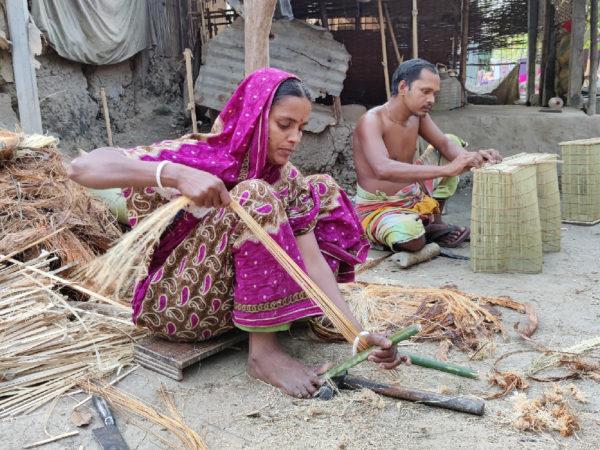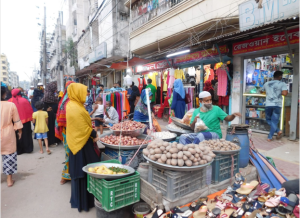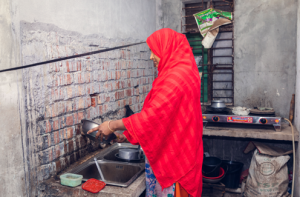
Informal Works
Lack of security in formal sector compelled street vendors to remain informal sector Street vendors are not in a position

71% of all women workers, compared to 20% of all male workers, are home-based In Bangladesh.
This sub-sector remains largely invisible, despite providing "hidden" labour to leading on a piece-rate basis
It is essential to recognise that these home-based workers are a vital part of the economy
Home-based workers face the problem of exploitation, low wages, lack of secure contracts & they have to pay for many of the non-wage costs.
Home-based workers are individuals who engage in employment activities within the vicinity of their homes or on the premises attached to their homes. It refers who carrying out work in their homes for remuneration, resulting in a product or service as specified by the employer. They supply labour through agents or contractors. This informal and home-based nature of employment attracts “cheap” female labour mostly and they continue to remain invisible in the labour market.
In Bangladesh, 71 percent of all women workers, compared to 20 percent of all male workers, are home-based. This sector has provided income-generating opportunities for poor and marginalized women from vulnerable households, with minimal skills. They have few opportunities to negotiate their working conditions and possess no bargaining power with their employers. Contractors exploit cheap, female labour to their advantage. In addition, they have to pay for many of the non wage costs of production costs of space and storage, utilities, and equipment.
According to the Bangladesh Bureau of Statistics’ Labour Force Survey 2017, there are approximately 3.2 million non-agricultural workers in the country, and this number has been increasing due to the employment of more female home-based workers. The exclusion of home-based workers from the formal value chain allows factories and employers to take advantage of unrecognised labour, depriving these workers of the protections afforded by Bangladesh Labour Law. It is essential to recognise that these home-based workers are a vital part of the economy, as they also facilitate the operations of small and medium-sized enterprises.

Lack of security in formal sector compelled street vendors to remain informal sector Street vendors are not in a position

Lack of security in formal sector compelled street vendors to remain informal sector Street vendors play a significant role to

Waste pickers significantly contribute to green economy but not recognized and victim of discrimination 120,000 waste pickers in Dhaka, recycled

Domestic children and women workers suffer silently in Bangladesh. Domestic workers are a highly vulnerable group in Bangladesh. High proportion